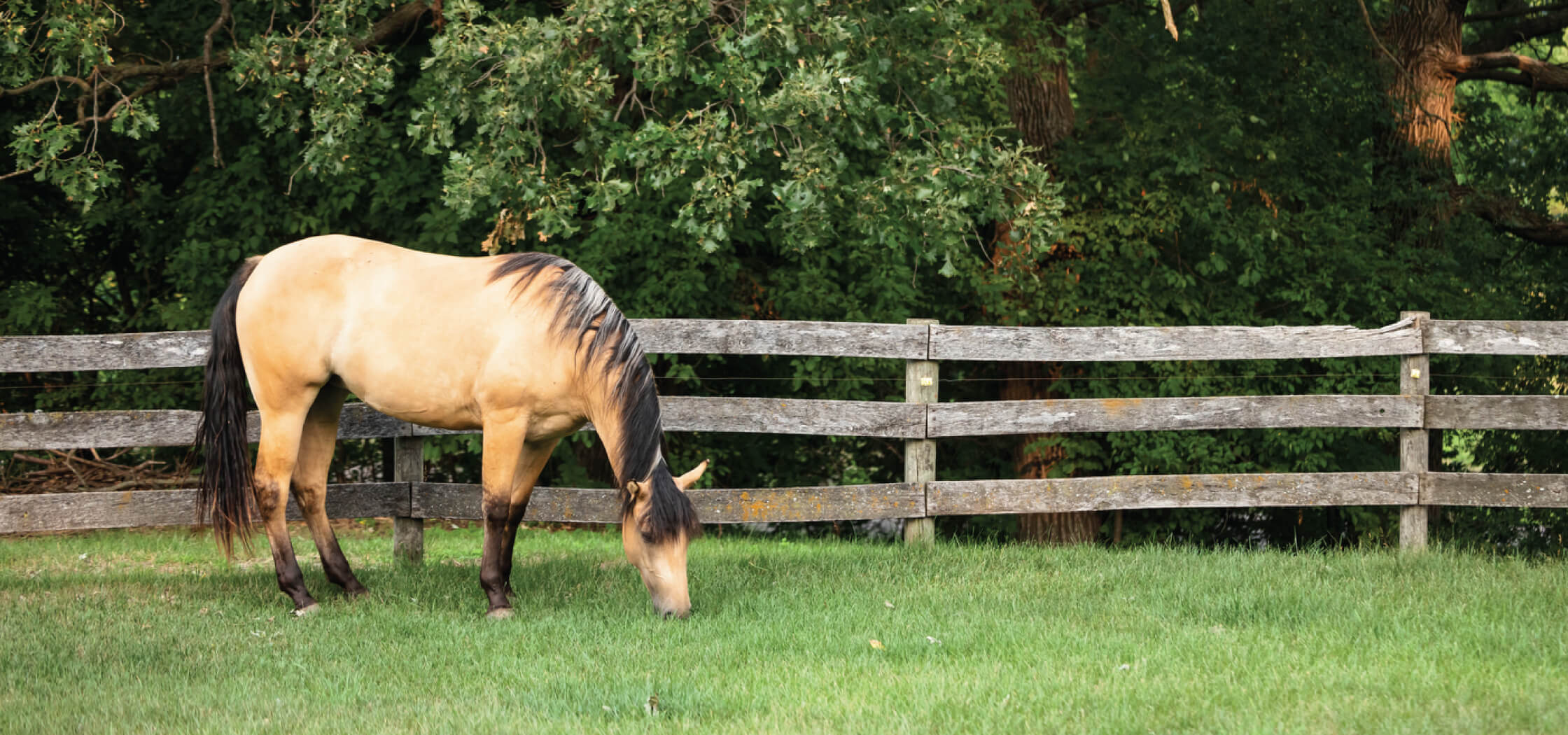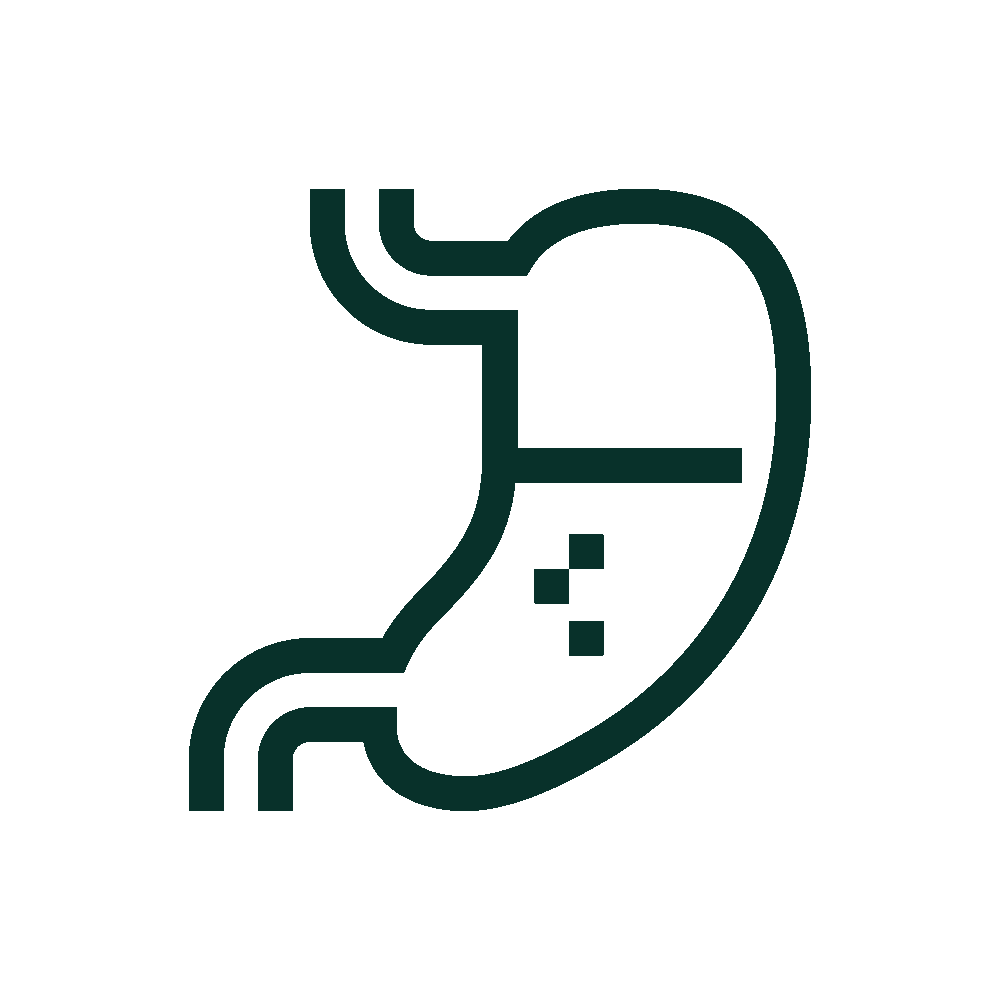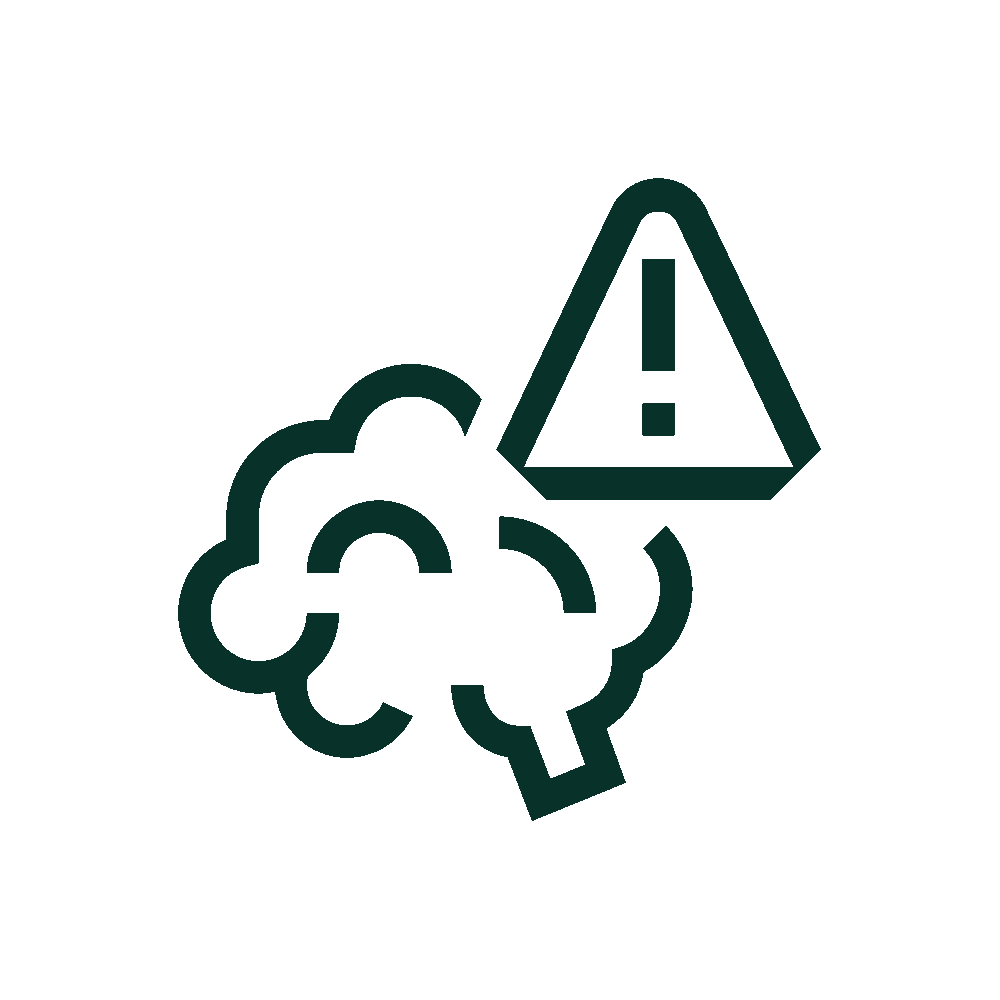Choosing the Right Dewormer
by Boehringer Ingelheim / May 17, 2024

Five Things to Consider When Choosing A Deworming Product
As much as we love our horses, parasites do, too. Horses can become infected with internal parasites, such as tapeworms and roundworms, while on pasture. Although an unavoidable and natural occurrence, the presence of parasites can be effectively managed through the administration of anthelmintics, or dewormers. Every dewormer is different, targeting different parasites with different active ingredients. When choosing a dewormer to administer, there are multiple factors to consider to ensure your horse is receiving proper protection.
1. Age
While every horse will need to be dewormed at some point in their life, young horses need to be dewormed more frequently than their adult counterparts. Younger horses may not have a properly developed immune system until they reach adult age, leaving them more susceptible to parasites.1 Generally, adult horses will have a stronger immune system that helps protect against internal parasites. As horses get older, their immune system will gradually decline. As a result, older horses may also need to be dewormed more frequently.
Certain types of parasites, such as roundworms, are also more common in younger horses. These parasites are most commonly found in foals and weanlings from 3 to 9 months old.2
2. Shedder Category
A horse’s shedder category refers to the number of parasite eggs found in a horse’s feces, which can range from low to moderate to high. Work with your veterinarian to determine your horse’s shedder category – this can be done by performing a fecal egg count (FEC), which measures the number of parasite eggs per gram (EPG) of feces. High shedders will typically need to be dewormed more frequently in order to appropriately manage their health, while a low shedder may need to be dewormed less often.1 The process of performing an FEC and developing a deworming strategy based on the results is called strategic deworming, and is intended to help prevent anthelmintic resistance, or resistance to the active ingredient in the dewormer.
3. Active Ingredient
While there are many dewormers available, they all have different active ingredients that target different parasites. A dewormer that is effective at one barn may not be effective at another, depending on what parasites are present, or if any resistance is present, at that location. Some common active ingredients are:
- Benzimidazoles
- Pyrimidines
- Macrocyclic lactones
- Praziquantels
Once an FEC is performed by a veterinarian and a dewormer is administered, a fecal egg count reduction test (FECRT) may be performed to ensure that the selected active ingredient was effective. A veterinarian will perform a FECRT by collecting a second FEC 10–14 days post deworming, and determining the percentage of egg reduction. A FECRT can also help to show if a resistance is being built against a certain active ingredient. If and when a new horse arrives on the property, they should go through the same process.
4. Time of Year
Seasons, weather and geography can play a significant role in deworming schedules with small strongyles most typically presenting themselves in the spring. Work with your veterinarian to determine when and what type of dewormer is right for your horse and farm.
5. Recommendations From Your Veterinarian
As with any horse health care decision, you should work with your veterinarian to determine the best course of action for your horse and farm. Protecting your horse against internal parasites is not a simple task, and while fecal testing will determine the shedding category of your horse, your veterinarian is the best resource for deciding on a product and helping to establish an effective parasite prevention and monitoring program. In addition to deworming, it’s also important to maintain regular veterinary care, such as yearly vaccinations, examinations, and general health care.
Deworming is a complex topic, with many product options and schools of thought. Your horse’s age, shedder category, the active ingredient in the product and the time of year should all be considered when working alongside your veterinarian to develop a deworming schedule.
REFERENCES
1 Kirkland B. Decoding dewormers: types, resistance concerns and use for horse. Penn State Extension, College of Agricultural Sciences, The Pennsylvania State University. 2022. Available at: https://extension.psu.edu/decoding-dewormers-types-resistance-concerns-and-use-for-horses. Accessed on July 28, 2023.
2 Frederick JD, Wilson J. Deworming your horse. University of Minnesota Extension. 2021. Available at: https://extension.umn.edu/horse-health/controlling-and-treating-parasites-your-horse#common-parasites--67460. Accessed on July 24, 2023.
©2025 Boehringer Ingelheim Animal Health USA Inc., Duluth, GA. All rights reserved. US-EQU-0138-2024






